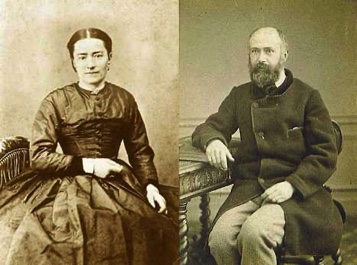Podcast: Play in new window | Download (Duration: 3:15 — 2.4MB) | Embed
Subscribe: Apple Podcasts | Spotify | Amazon Music | Android | Pandora | iHeartRadio | JioSaavn | Podchaser | Gaana | Podcast Index | Email | TuneIn | Deezer | Anghami | RSS | More
From a demonstration by Aphraates, bishop
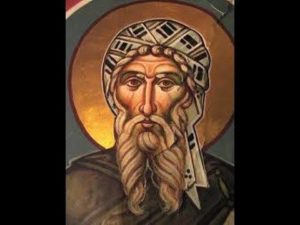
Circumcision of the heart
Law and covenant have been entirely changed. God changed the first pact with Adam, and gave a new one to Noah. He gave another to Abraham, and changed this to give a new one to Moses. When the covenant with Moses was no longer observed, he gave another pact in this last age, a pact never again to be changed.
He established a new law for Adam, that he could not eat of the tree of life. He gave to Noah the sign of the rainbow in the clouds. He then gave Abraham, chosen for his faith, the mark and seal of circumcision for his descendants. Moses was given the Passover lamb, the propitiation for the people.
All these covenants were different from each other. Moreover, the circumcision that is approved by the giver of those covenants is of the kind spoken of by Jeremiah: Circumcise your hearts. If God’s pact with Abraham was firm, so also is this covenant firm and trustworthy, nor can any other law be laid down, whether it originates outside the law or among those subject to the law.
God gave Moses a law together with his prescriptions and precepts, and when it was no longer kept, he made the law and its precepts of no avail. He promised a new covenant, different from the first, though the giver of both is one and the same. This is the covenant that he promised: All shall know me from the least to the greatest. In this covenant there is no longer any circumcision of the flesh, any seal upon the people.
We know, dearly beloved, that God established different laws in different generations which were in force as long as it pleased him. Afterwards they were made obsolete. In the words of the apostle: In former times the kingdom of God existed in each generation under different signs.
Moreover, our God is truthful and his commandments are most trustworthy. Every covenant was proved firm and trustworthy in its own time, and those who have been circumcised in heart are brought to life and receive a second circumcision beside the true Jordan, the waters of baptism that bring forgiveness of sins.
Jesus, son of Nun, renewed the people’s circumcision with a knife of stone when he had crossed the Jordan with the Israelites. Jesus, our Saviour, renews the circumcision of the heart for the nations who have believed in him and are washed by baptism: circumcision by the sword of his word, sharper than any two-edged sword.
Jesus, son of Nun, led the people across the Jordan into the promised land. Jesus, our Saviour, has promised the land of the living to all who have crossed the true Jordan, and have believed and are circumcised in heart.
Blessed, then, are those who are circumcised in heart, and have been reborn in water through the second circumcision. They will receive their inheritance with Abraham, the faithful leader and father of all nations, for his faith was credited to him for righteousness.
Look with favour on our Lenten observance, Lord,
and while we subdue our bodies by self-denial,
renew our spirit with the grace that prompts us to good works.
Through our Lord Jesus Christ, your Son,
who lives and reigns with you in the unity of the Holy Spirit,
God, for ever and ever.
Excerpts from the English translation of The Liturgy of the Hours (Four Volumes) © 1974, International Commission on English in the Liturgy Corporation. All rights reserved.

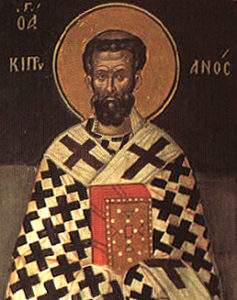
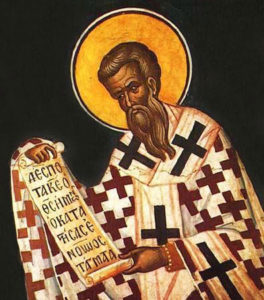
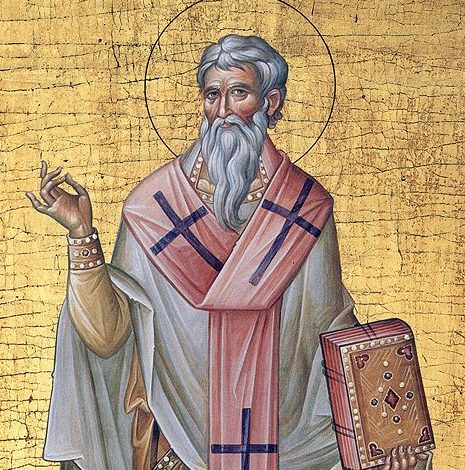


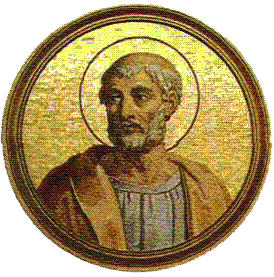
 Mothers and sisters most dear to me in Christ: in the first place strive with all your power and zeal to be open. With the help of God, try to receive such good counsel that, led solely by the love of God and an eagerness to save souls, you may fulfil your charge.
Mothers and sisters most dear to me in Christ: in the first place strive with all your power and zeal to be open. With the help of God, try to receive such good counsel that, led solely by the love of God and an eagerness to save souls, you may fulfil your charge.